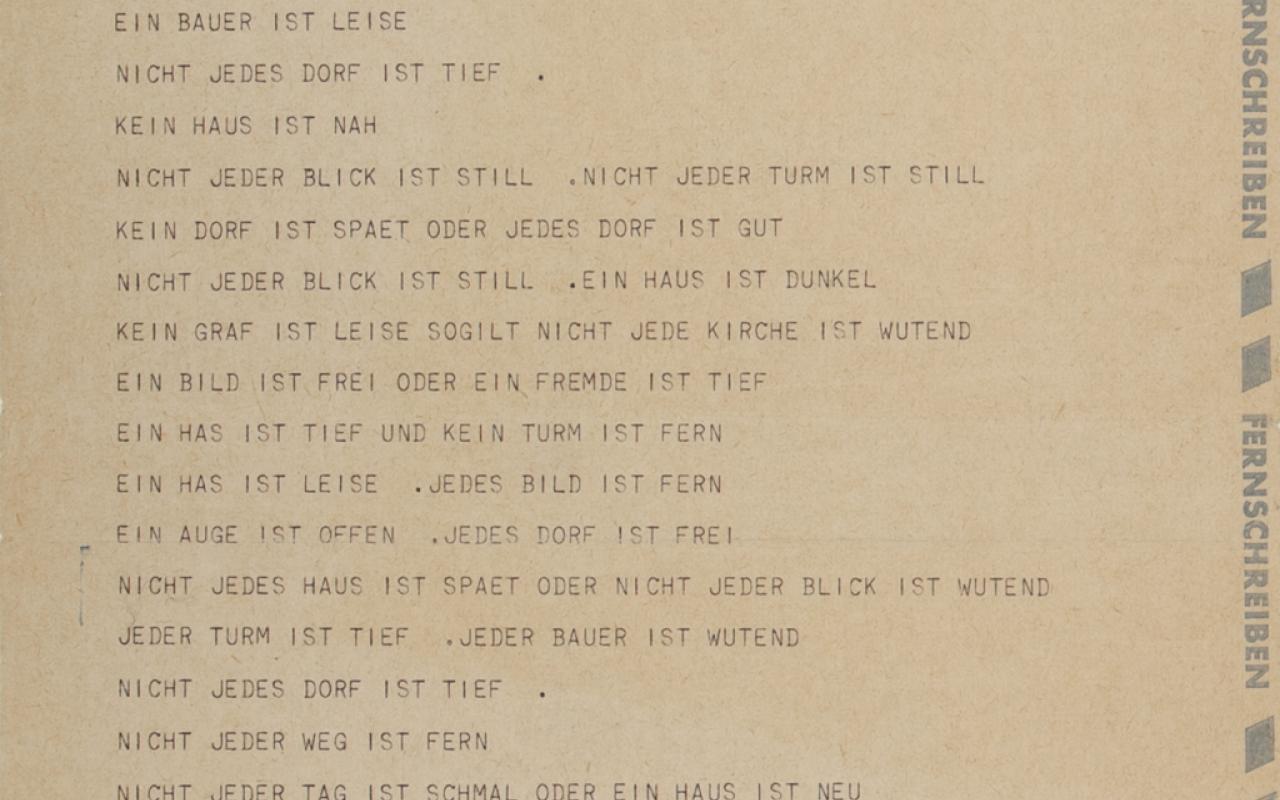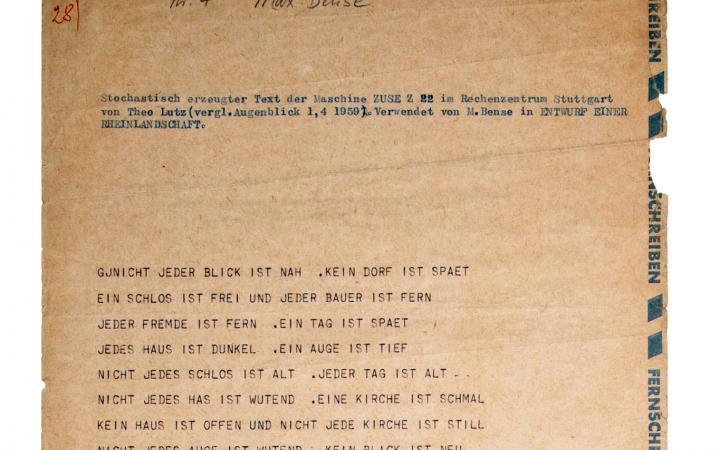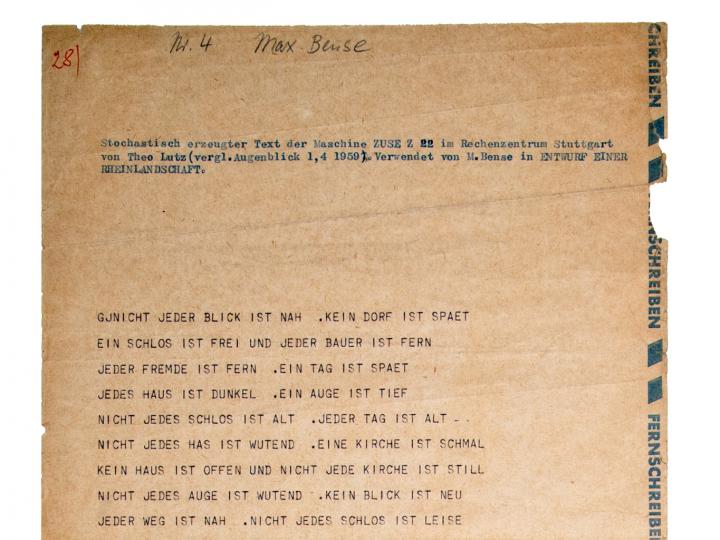Theo Lutz
Stochastische Texte
1959

- Artist / Artist group
- Theo Lutz
- Title
- Stochastische Texte
- Year
- 1959
- Category
- computer-generated
- Material / Technique
- computer-generated poem in 70 lines ; computer: Zuse Z22; output device: teleprinter
- Dimensions / Duration
- ca. 80 x 20 cm
- Collection
- ZKM | Center for Art and Media Karlsruhe
- Description
Since the invention of the first electronic calculating machines, the question of whether computers can think has been linked to the question of whether they can also be creative. The British mathematician Alain Turing, for example, stressed in 1949 that machines would permeate all areas of human thinking and even write sonnets.
In the autumn of 1959, the magazine »Augenblick« published one of the first computer-generated poems in the world that we know of today under the title »Stochastische Texte«. The author of the article and programmer of the poetry program was the mathematician Theo Lutz.
Theo Lutz, who studied at the Technical University of Stuttgart, had developed the idea that computers could be used not only for the statistical analysis of texts, but also for their synthesis, since the rules of a language can be described by algorithms. A friend, the mathematician Rul Gunzenhäuser (1933–2018), supported Lutz in his project by mathematically modelling the required algorithms. He also suggested using words from Franz Kafka's novel »The Castle« as source material for the poem.
Lutz selected 16 nouns and 16 adjectives from Kafka's text and added a selection of 4 conjunctions and 4 pronouns. The combination of these elements made it possible to create 4 ,174 ,304 different sentences. The 70-line poem, which is a minute excerpt of all possible combinations, is preserved in two printouts, which are kept by the ZKM and the German Literature Archive Marbach.
Lutz used the programming language FORTRAN. The poem was calculated on a Zuse Z22 computer at the Technical University Stuttgart. One of the few remaining computers of this type has been on permanent loan to the ZKM since 2004.


